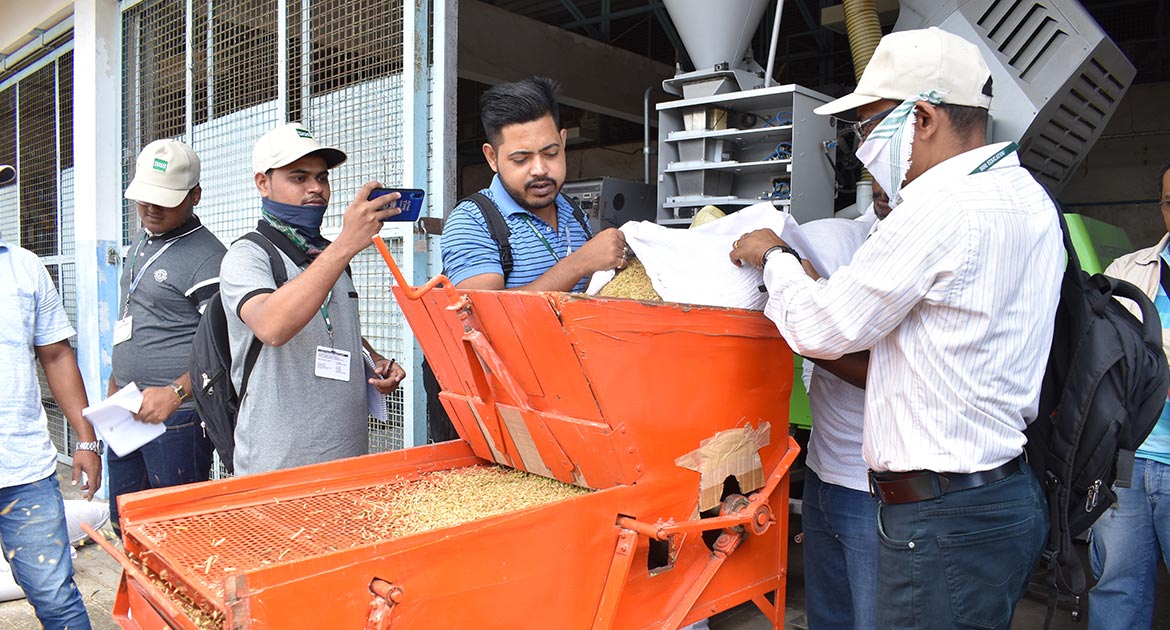Preventable post-production losses deprive farmers and other chain actors of food security and income. Post-harvest losses, in South East Asia, for example, typically range from 15-25% in weight with additional losses of 10-30% from reduction of quality. Post-harvest management offers significant potential to increase food security and generate higher incomes.
This module introduces participants to critical issues and challenges in reducing postproduction losses. This includes:
- identifying and measuring losses at all points in the post-production chain, from harvest to market;
- evaluating technology options for harvesting, threshing, drying, storage, and milling of paddy;
- evaluating methodologies and tools to assess local post-harvest chains, map actors, and using a business plan to introduce or scale out suitable technology options.
Completing the course provides the necessary knowledge and skills to help post-production actors in reducing their losses and increase the value of their rice crops. Successful participants will be qualified to evaluate and introduce improved technologies to farmers and other actors for better post-production management.
Successful candidates will be awarded the IRRI Accredited Postharvest Trainer which qualifies them in:
- Administering post-production skills.
- Using the IRRI Quality Kit for assessing the quality of paddy, milled rice and seeds.
- Describing rice markets and rice quality standards.
- Distinguishing suitable technology and management options for post-production.
- Developing a project design framework and a business plan involving multiple ‘actors’ in the post-production landscape.
- Compiling post-harvest knowledge resources.
Key Modules
- Grain Quality and Measurements
- Harvesting
- Drying
- Storage
- Milling, Grain Cooling, and Rice Standards
- Business Models and Sustainable Rice Straw Management
Key Modules
- Data Management Planning
- Data Organization
- Data Collection and Validation
- Data Storage, Back-up and Security
- Data Archiving and Sharing
Target Audience
- Recommended participants are representatives of national agricultural systems, NGOs, and the private sector. The selected participants will participate in post-production operations.


